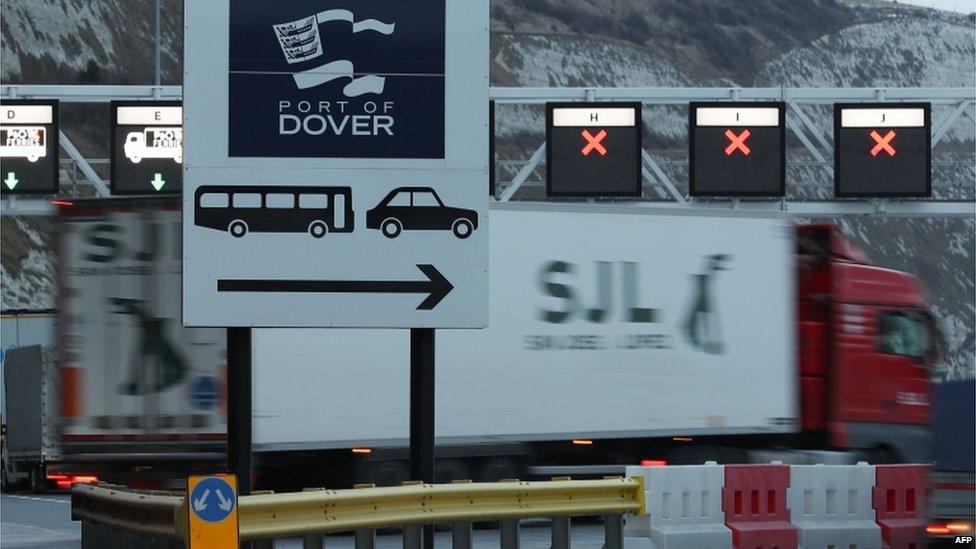What does the customs union debate mean?
- Published
- comments

It's just a debate.
The Liaison Committee debate on the customs union on Thursday will not be decisive or apocalyptic.
Nor will it force ministers to change their Brexit policy.
It is a prelude, not a finale, grand or otherwise.
It will be low key in a number of ways. First, in a rather unfortunate diary clash, the Brexit select committee members are due to be in Berlin, talking to the German government. Awks, because their chair, Hilary Benn is one of the key signatories to the motion, and a number of other key Commons figures will have to be elsewhere.
And government is not contesting the motion very hard. Tory MPs are being "encouraged" to hit the campaign trail in the local elections.... which suggests ministers do not intend to rise to the bait and want the debate to bellyflop.
But the debate does crystallise an interesting question. Can Parliament, and more particularly the Commons, seize the wheel and force ministers down a different route in the Brexit negotiations?
The motion due for debate does not even attempt to do that. Boiled down, it says that says that "a" customs union with the EU would be a jolly good idea and "therefore calls on the government" to make a CU one of its objectives in the Brexit talks.
So it is an attempt to express an opinion on the conduct of the talks, not a direct mandate on ministers.
There are, however, a couple of attempts in the pipeline to instruct ministers negotiate a CU; the Lords passed an amendment to the EU (Withdrawal) Bill, external, last week to require the government to report to both Houses by 31 October 2018 regarding the steps taken to negotiate continued participation of the UK in a customs union with the EU, before the European Communities Act 1972 can be repealed.
This just means they have to say what they did, so it's not particularly strong and the government could, at a pinch, simply live with that requirement... and simply trot into Parliament and say "well, we tried..."
Then, there are the rather tougher amendments to the Trade Bill, proposed by Tory rebels, which attempt to add a CU to the UK's negotiating objectives. Given the number of Conservative signatories on both New Clause 1 and New Clause 5, which are variations on this theme, the government has cause to fear for its majority when they are debated.
But what does passing any of them actually mean?
It is, as Brexit Minister Steve Baker remarked to the Lords Constitution Committee last week, a novel concept that Parliament should seek to drive an international negotiation this way; but suppose it did?
Ministers could be told to negotiate for something, but could they be made to mean it? Could Theresa May or David Davis satisfy the terms of the new clauses with by telling their EU opposite numbers that Parliament voted for this, while giving an exaggerated wink and crossing their fingers? The amendments might have the force of law, but there is no provision to punish ministers who defy or ignore them.
Maybe the real significance of a vote to pass these amendments would be if it signalled that a majority in the Commons was ready to insist on a customs union, come the "meaningful vote" on the Brexit deal, due in the autumn.
That would be a huge development, and would pose a huge problem for the Cabinet.